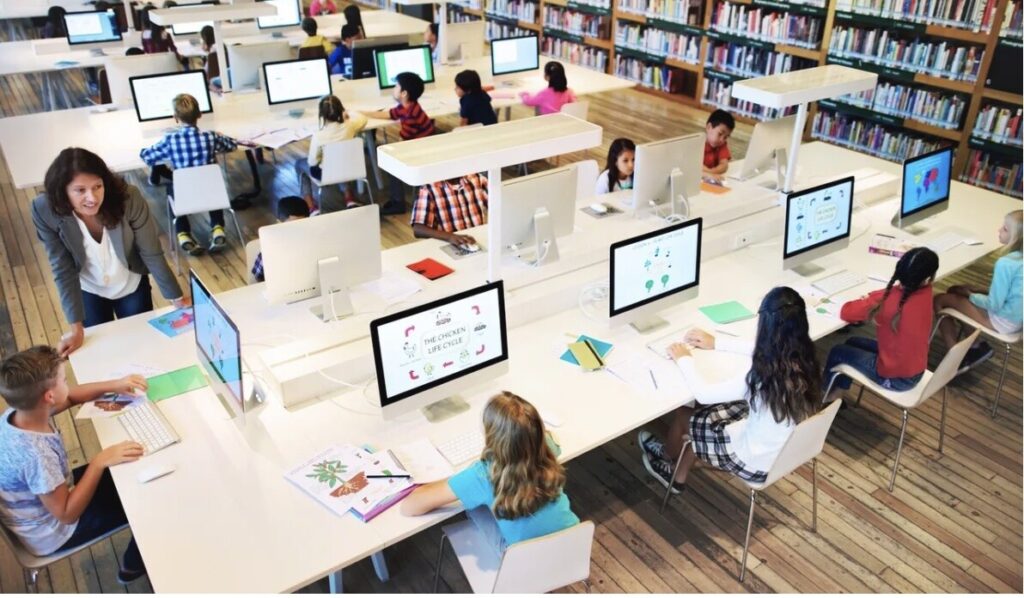Artificial Intelligence is transforming education by creating personalized, adaptive learning experiences that cater to individual student needs. AI-powered learning platforms, virtual tutors, and smart classrooms analyze student performance and adapt content accordingly, ensuring an efficient and engaging learning process. Platforms like Google Classroom, Coursera, and Duolingo use AI-driven algorithms to recommend courses, assess progress, and provide real-time feedback. These innovations make education more accessible, particularly for students in remote or underserved areas.
Another major application of AI in education is in automating administrative tasks. AI can handle grading, attendance tracking, and scheduling, allowing educators to focus on teaching rather than paperwork. Chatbots and AI-powered assistants help students with queries, offering 24/7 support for assignments and coursework. Augmented Reality (AR) and Virtual Reality (VR) are also enhancing experiential learning, making subjects like history, science, and engineering more interactive and immersive.
Despite these advancements, the adoption of AI in education comes with challenges such as data privacy concerns, the digital divide, and the need for teacher training. Not all students have access to AI-driven learning tools, and there is an ongoing debate about balancing technology with traditional teaching methods. However, as AI continues to enhance learning experiences, improve accessibility, and bridge educational gaps, it is clear that the future of education will be more dynamic, interactive, and student-centric.

